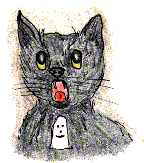 I think few people realise that the title of this blog is inspired by The Fall, perhaps my favourite band of all time (the other half of my blog title--the title in the address--is inspired by one of my favourite texts on surrealism, by Hal Foster; I myself am neither a beauty nor compulsive). Listening to Mark E Smith ranting about computers this evening, I remembered I'd bookmarked this piece of writing that hints at the hauntological possibilities of the Fall; right up my alley, obviously. It happens to be written by one of the contributors to the recent Cultural Fictions conference I attended at Goldsmiths.
I think few people realise that the title of this blog is inspired by The Fall, perhaps my favourite band of all time (the other half of my blog title--the title in the address--is inspired by one of my favourite texts on surrealism, by Hal Foster; I myself am neither a beauty nor compulsive). Listening to Mark E Smith ranting about computers this evening, I remembered I'd bookmarked this piece of writing that hints at the hauntological possibilities of the Fall; right up my alley, obviously. It happens to be written by one of the contributors to the recent Cultural Fictions conference I attended at Goldsmiths.At the conference, and while I'm thinking about it (and I really should take notes when I think of these things), I especially enjoyed Mark Broughton's talk on dyschronia in relation to the excellent vintage sci-fi/ghost-fi, made-for-TV flick, The Stone Tape. However, I contend that ghosts are ALWAYS dyscrhonic, not just on the occasions when they're inaccessible through technology and "buried in time," as in The Stone Tape. It's not that technology is used to combat the mysticism surrounding ghosts; in my research on electronic voice phenomena (EVP) and the use of other digital methods of "scientific" ghost hunting, it's the technology that reinforces and redefines the uncanny nature of ghosts--and isn't dyschronia just one more example of the uncanny (being lost in, or TO, time goes beyond other forms of disorientation)? Ghosts are always dyschronic experiences, and even more so when they are stored as endlessly repetitive visual and sonic phenomena in out-of-time-and-space digital archives. Ghosts are irreversibly out of time--through technology they both symbolically and discursively keep repeating (and I don't buy exorcism film-myths and hate how Catholicism has ruined many an otherwise good horror film, but that's a topic for another post). This potential (or inevitable) link of ghosts and technology reinforces Mark B's suggestion (and my own hunch) that ghosts are the ultimate sci-fi figures; they are the ultimate uncanny, as my interminable thesis suggests.

No comments:
Post a Comment